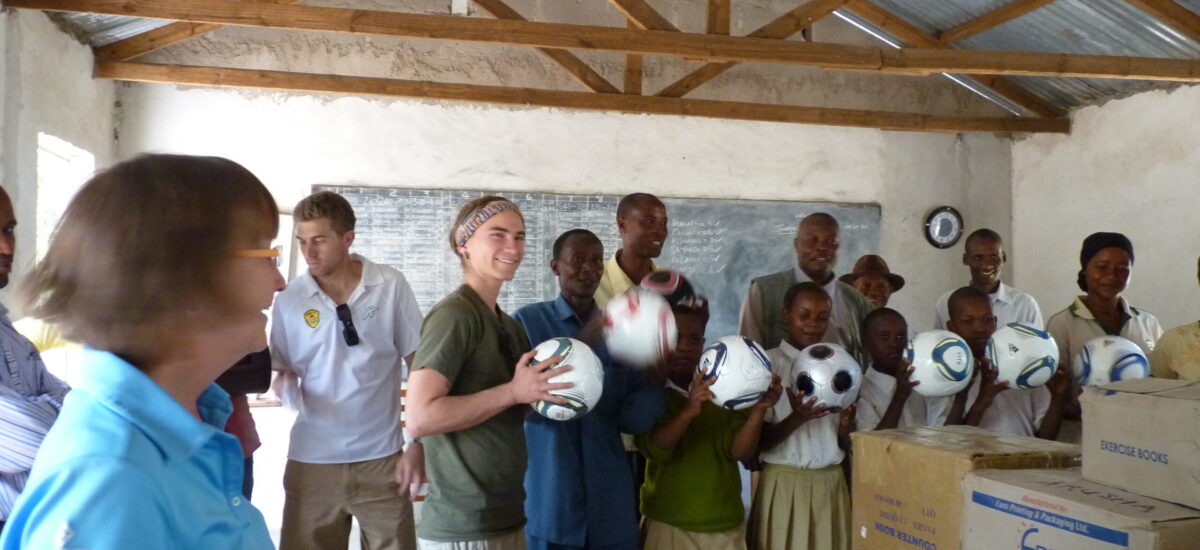About Special Education in Arusha,Tanzania

Tanzania has taken many steps in recent years to improve access to, and the quality of, education, but in many communities there is still a lack of resources and adequately trained teachers for children with special needs.
Volunteers who wish to support these children can make a valuable contribution by participating in our Special Education program in Tanzania. On this program, volunteers work at a center for special-needs students of all ages and assist both inside and outside the classroom. Depending on their experience and what kind of help is most needed, volunteers may help in areas such as preparing lessons and directing classes, assisting with speech therapy sessions, and caring for the children.
Volunteers may also help with extracurricular activities such as art, music, and crafts. Some volunteers work with the students to make handicrafts that can be sold as souvenirs, earning money for the students and for the center.
A Typical Day in the Life of a Volunteer in Tanzania
Our volunteers in Tanzania can expect their days to be a combination of meaningful volunteer work, cultural experiences, and free time for relaxation and reflection.
The sample schedule below represents a typical day for a volunteer in Tanzania. Keep in mind that when volunteering abroad, a typical day can be anything but typical!
7:30 am – 8:00 am: Breakfast with your host family or at the volunteer apartment. Breakfast in Tanzania often consists of fruit, freshly baked bread, eggs, and a cup of locally-grown coffee or spiced milk tea.
8:00 am – 8:45 am: Walk or catch the local bus to travel to your volunteer project site.
8:45 am – 12:30 pm: Work at volunteer placement.
12:30 pm – 1:30 pm: Lunch with your host family, at the project site, or at a local affordable restaurant. Lunch in Tanzania often includes a combination of wali (rice), beans, ndizi kanga (fried bananas or plantains), spinach or other greens, maandazi (bread rolls), sambusas (triangular pastries deep-fried and filled with vegetables or meat), or nyama choma (a piece of goat meat, chicken or beef grilled on an open fire).
1:30 pm – 3:00 pm: Work at your volunteer project.
4:00 pm – 7:00 pm: Free time to stop by the market, hang out with other volunteers, visit the internet café, watch a rugby or soccer game, or play soccer with the local children.
7:00 pm – 8:00 pm: Dinner with your host family or at the volunteer apartment. Dinners in Tanzania often include beans, meat, or fish with rice, ugali (porridge made of cornmeal) or chapatti (fried flatbread).
8:00 pm – 10:00 pm: Relax at home, practice Swahili and watch a movie with your host family, prepare for the next day’s volunteering, or plan a weekend excursion to go hiking, go on a safari, or visit Lake Victoria, Mount Kilimanjaro, the coast, or one of Tanzania’s beautiful national parks.
Project and class schedules, meals, and free time activities may vary depending on the details of your placement.
Eligibility
Volunteers must be 18 years of age or older. Successful volunteers are hardworking, flexible, and open to truly immersing themselves in Tanzanian culture.
Housing Overview
The housing for volunteers in Tanzania varies by project. Some volunteers live with host families, a fantastic way to become immersed in the local language and culture. When living with host families, volunteers build relationships, practice the local language, and learn about traditional culture, food, and customs.
All host families are welcoming and friendly, and they are hand-picked by our team to ensure that each placement provides a safe and positive environment for the volunteer. Other volunteers may live in apartments in town, usually sharing a room with another volunteer, or in accommodations at their project sites. Housing accommodations may differ from Western norms in terms of space or amenities, but they are always safe and clean.
IMPORTANT INFORMATION.
- TIPS BEFORE APPLYING.
- TRIP ADVISORY
- FIND YOUR COPY OF THE BRONCHURE HERE.
